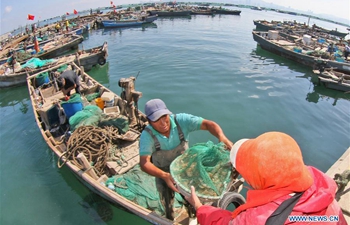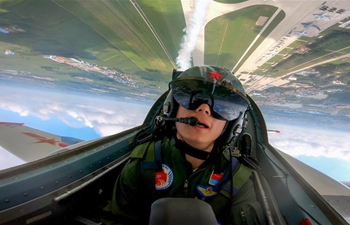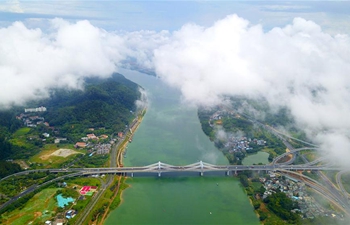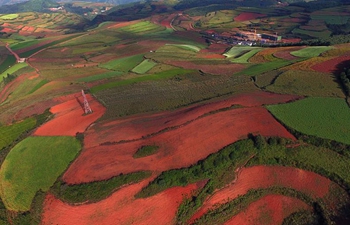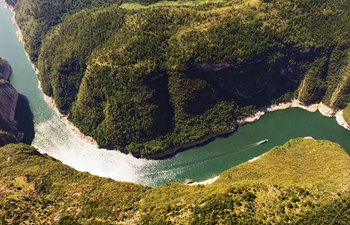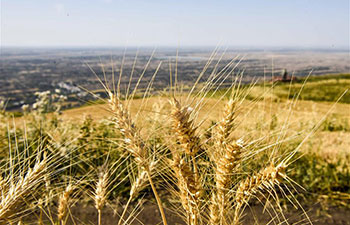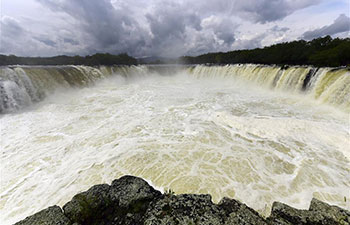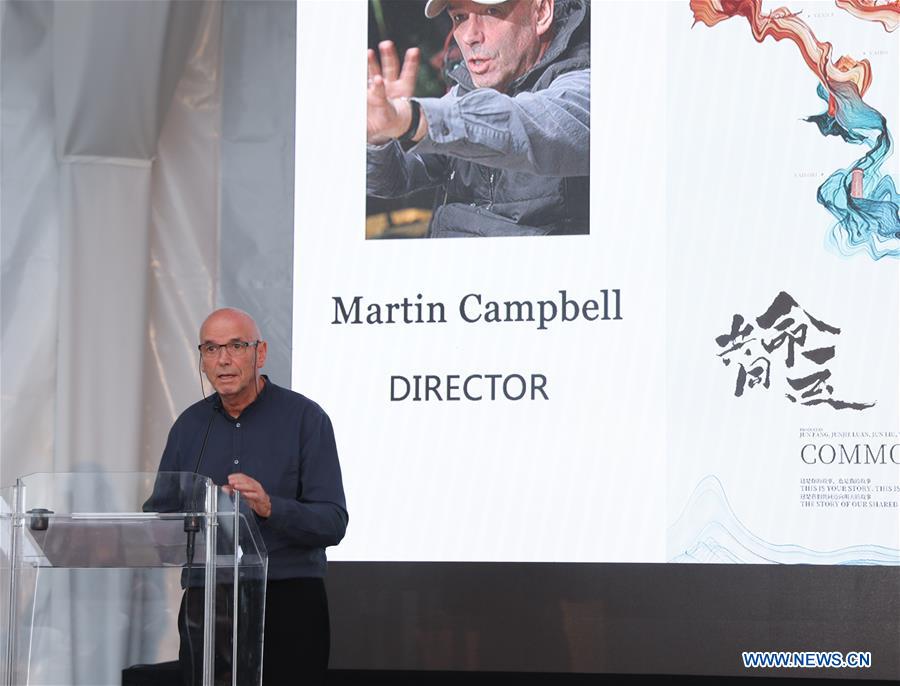
Director Martin Campbell speaks at the presentation of the documentary "Common Destiny" during the 75th Venice International Film Festival in Venice, Italy, Sept. 2, 2018. A Chinese documentary about the Belt and Road Initiative (BRI) was presented at the Venice Film Festival on Sunday. Titled Common Destiny, the documentary tells the stories of ordinary people fighting for their dreams across five continents, whose lives are affected by the BRI, China's multi-billion-dollar global trading and infrastructure initiative. (Xinhua/Cheng Tingting)
By Stefania Fumo
VENICE, Italy, Sept. 2 (Xinhua) -- A Chinese documentary about the Belt and Road Initiative (BRI) was presented at the Venice Film Festival on Sunday.
Titled Common Destiny, the documentary tells the stories of ordinary people fighting for their dreams across five continents, whose lives are affected by the BRI, China's multi-billion-dollar global trading and infrastructure initiative.
One of these stories is about a schoolgirl who wants to become an artist, and who lives in an isolated village in Kenya. Because there is no art teacher at the village school, she decides to set out for the distant capital, Nairobi.
At first she tries to walk there, but discovers that there is a railway with trains that can take her to Nairobi. She saves money for a ticket by selling milk from the family goat, until she is finally able to travel to the capital. There, she finds an art teacher willing to come back to her village to teach her and the other kids.
Another story is about a retired papermaker who lives in the Spanish city of Cuenca. He decides to travel to China, where paper was invented thousands of years ago, to connect with a master craftsman in a remote village. There, he learns the ancient way of making paper. This inspires him, and when he returns home to Cuenca he reopens his studio and hires a young apprentice.
The protagonist of this story, Segundo Santos, was on hand at the presentation of the documentary in Venice.
"I learned the craft when I was 26 years old, and I have been making paper for 40 years," Santos said. "In my city, Cuenca, we have been making paper for the past 400 years."
He said that paper first made its way into Europe through Spain in the 1500s, thanks to trade along the ancient Silk Road.
During his trip to China, he said, he learned from "Chinese masters, who transmitted their knowledge along with their friendship and their generosity."
Guy Hibbert from the UK was one of the three screenwriters who worked on this documentary, which was put together by six Chinese directors and four directors of photography: one American, two British, and one Chinese.
"These stories connect to a single narrative, on how the new Silk Road will transform the lives of people across the globe," said Hibbert.
"What I love about the premise of this film is that the emphasis is on the lives of ordinary people" and the struggles in their daily lives, he said.
One of these stories, he said, is about villages in Pakistan with no access to electricity, where the people are desperate to watch cricket games on TV.
"These are ordinary stories, but everyone's story is important and profound," he said. "I'm a passionate believer in countries working together."
Beijing University Professor Lei Jianjun, who consulted on the documentary, said that humanity right now is facing the key challenges of environmental protection and sustainable development.
"We must face these challenges together," said Lei. "This is why we made the documentary".
By showing that people all over the world share similar emotions, needs and concerns, the documentary shows that "we have a common destiny, and we must work for it together."
